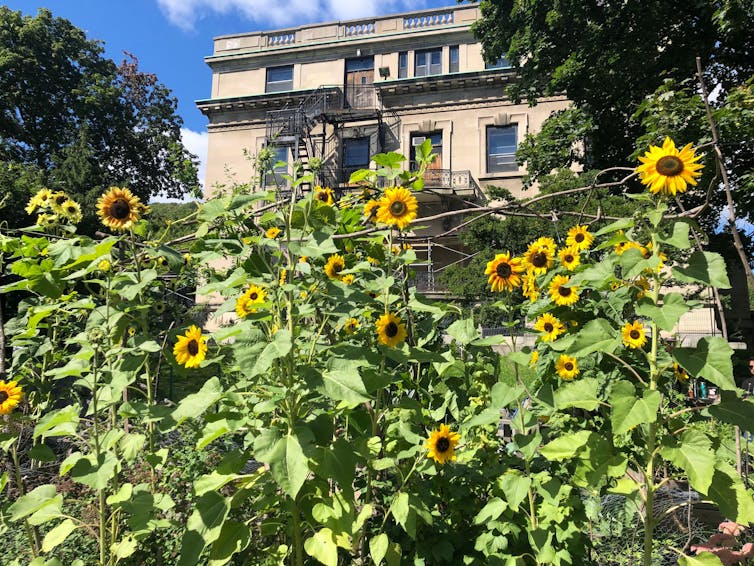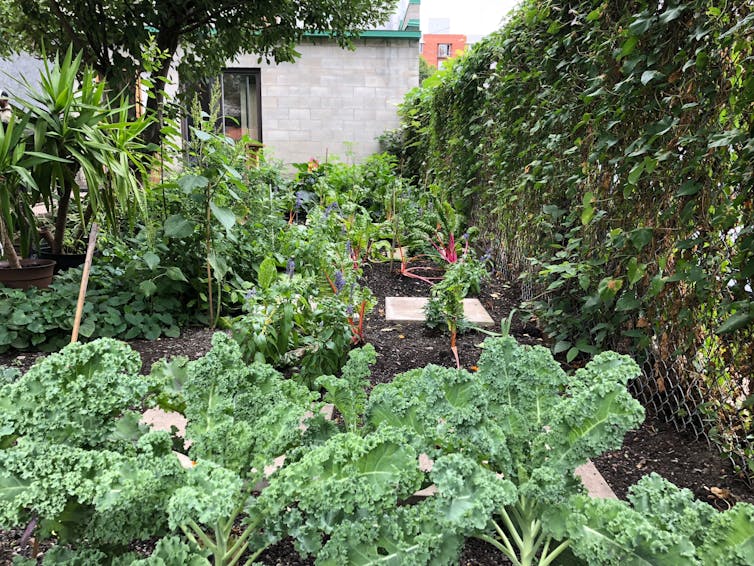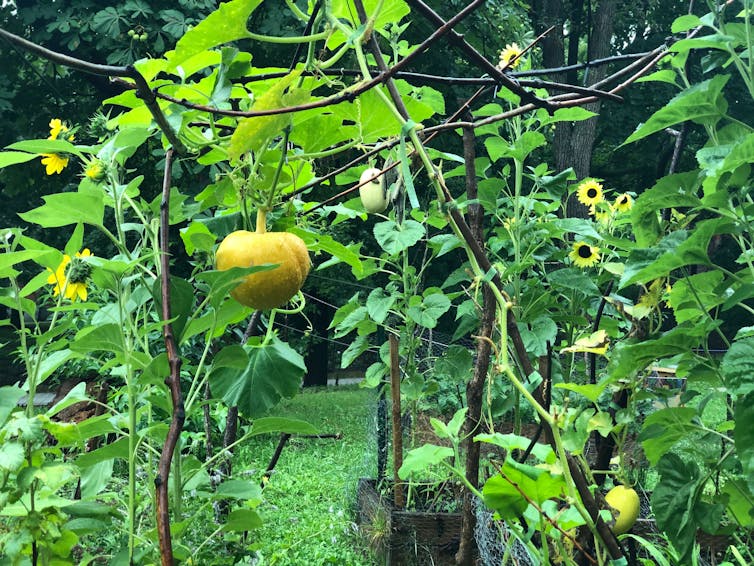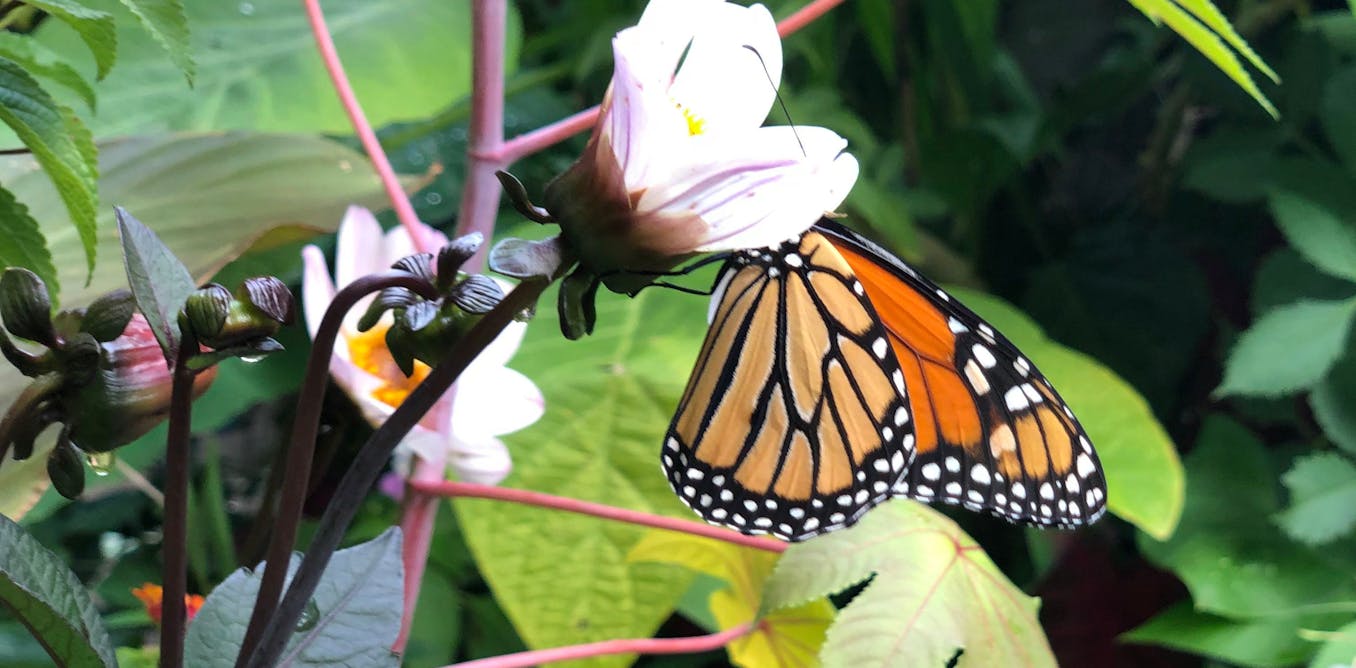[ad_1]
Whereas it’s broadly understood that group and and faculty gardening have innumerable well being, well-being and academic advantages, it’s vital to comprehend these advantages don’t magically seem when gardens take root.
Over the previous six years, I’ve labored intently with educators, group employees, activists and group members in Tio’tia:ke/Montréal as we created, funded and sustained gardens and backyard groups at faculties and group organizations.
We arrange grownup schooling internships to offer sensible gardening and instructing help to discover the extent to which gardens act as boards the place individuals handle social and environmental justice. Some contributors skilled obstacles to employment, meals insecurity and homelessness.
This analysis and group work demonstrated how vital it’s to advocate for broader social, city and academic structural modifications to help group backyard work — and to know the significance of getting life like expectations about what individuals can accomplish in and thru gardens.
Who do advantages attain?
In Tio’tia:ke/Montréal, group gardening unfolds in many various ways in which would possibly embody gardening efforts at community-based organizations and city-run gardens.
There are vital wait lists to entry a backyard plot within the metropolis, exacerbated by group gardens being traditionally extra accessible to property-owning people.
In keeping with the mayor of Montréal, “for many individuals, group gardens are greater than only a interest. They permit them to feed their households and to acquire recent produce at a low price.”
Such statements obscure extra advanced points round who controls and accesses group gardens and deeper entrenched social inequities referring to land rights in a capitalist settler-colonial society that privileges possession, whiteness and hierarchical modes of relating.

(Mitchell McLarnon), Creator offered (no reuse)
Relationship to meals insecurity
My findings contest claims that recommend group gardening is inherently an exercise that reduces under-served communities’ meals insecurity.
Reflecting on my efforts to develop meals for organizations that work with individuals experiencing meals insecurity, as a part of a mission referred to as “Gardening for Meals Safety,” I can not declare gardening helped to alleviate the issues of individuals experiencing meals insecurity in any quantifiable manner.
That is regardless of producing an immense quantity of meals harvested on a weekly/bi-weekly foundation from late June to early November in 2018 and 2019.
Though the gardens had been thriving, the group by no means lowered their meals order to Montréal’s largest meals financial institution. This can be as a result of whereas contributors ate from the backyard harvest, their reliance upon it didn’t scale back their want for different meals. The Gardening for Meals Safety mission did, nevertheless, modestly help a meals financial institution and a once-a-week meal service.

(Mitchell McLarnon), Creator offered (no reuse)
Combined results for communities, people
As we gardened and invested in gardens for various social, instructional and environmental causes in quickly gentrifying neighbourhoods, we contributed to growing land values in a course of described as inexperienced gentrification.
Regardless of these vital observations, some advantages of the mission included:
- providing related paid employment for younger adults experiencing obstacles to employment, meals insecurity and homelessness;
- offering mentorship and alternatives for under-served younger adults and college students to specific themselves (via artwork, images, music, movie, gardening);
- facilitating partnerships between faculties and organizations with mandates of social and environmental justice for mutual profit;
- buying extended monetary, studying and human useful resource help to educators, learners, group employees and group members, whereas growing moral relationships and collaborating to perform shared targets.
The latter three varieties of advantages are tough to quantify to funders.
Issues with faculties gardens
Gardening as a part of environmental schooling is just not obligatory core curriculum in Québec. Faculty gardening usually happens outdoors of formal class time, throughout lunch hour or after faculty. Taken collectively, organizing gardening experiences for college kids inside most public faculties provides further labour to already overworked and under-supported educators.
For gardening to be related and add instructional worth for each lecturers and learners, gardens must be included into every core curricular space (French, English, Math and so forth) and never solely used earlier than or after faculty hours and through lunchtime.
Learn extra:
Faculty-community gardens plant the seeds of change to deal with world warming
Lots of my instructor collaborators acknowledged that they’re absolutely dedicated and excited by creating garden-based studying experiences for his or her college students. However securing permissions interprets to administrative labour. This could detract from arranging different vital points of backyard creation like establishing funding, constructing relationships with collaborators or drawing curricular connections and so forth.

(Mitchell McLarnon), Creator offered (no reuse)
Small group change
Tio’tia:ke/Montréal, like many Canadian cities, has an extended winter and a brief intense summer season. For college gardens to work, the planning and administrative labour and permissions for a spring backyard have to occur early within the faculty 12 months to account for inevitable delays.
If educators or outdoors events want to help faculty gardens with funding and labour, I strongly suggest that college students lead the creation, growth and importantly the analysis of the backyard as a mission.
When gardens are prematurely celebrated for producing anticipated outcomes corresponding to well being and well-being and meals safety, with no bigger acknowledgement of how these advanced points are affected by systemic obstacles, a lot could be misplaced.
This contains the well-being of lecturers who make investments immense labour in one thing they imagine in with restricted institutional help, and reasonably priced areas for individuals to dwell who get dispossessed of their properties, communities and networks via inexperienced gentrification.
No straightforward options
There aren’t any straightforward options to the social and environmental issues of faculty, group gardening or greening.
Typically, lecturers and group members need and wish a backyard, however they’re extra in want of: monetary help, instructing help, human useful resource help, extra time, fewer college students, curricular freedom, related skilled growth and land that isn’t a part of a much bigger capitalist system of personal possession or tied up in pink tape.
Even small group change takes time and desires ongoing collective effort.
That is an up to date model of a narrative initially printed Aug. 4, 2022. The sooner story mentioned gardens had been reserved for property-owning people as an alternative of extra accessible to them.
[ad_2]
